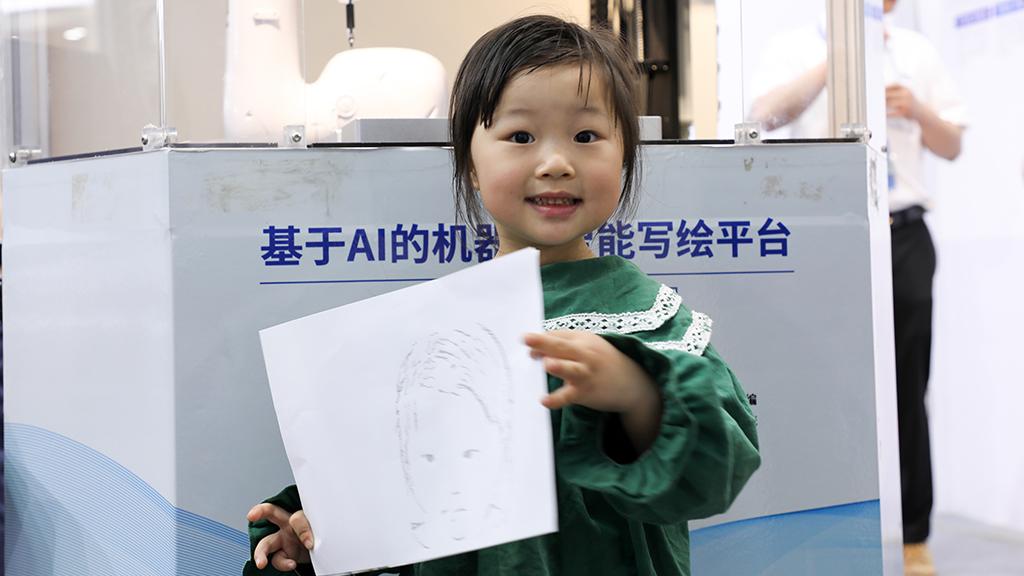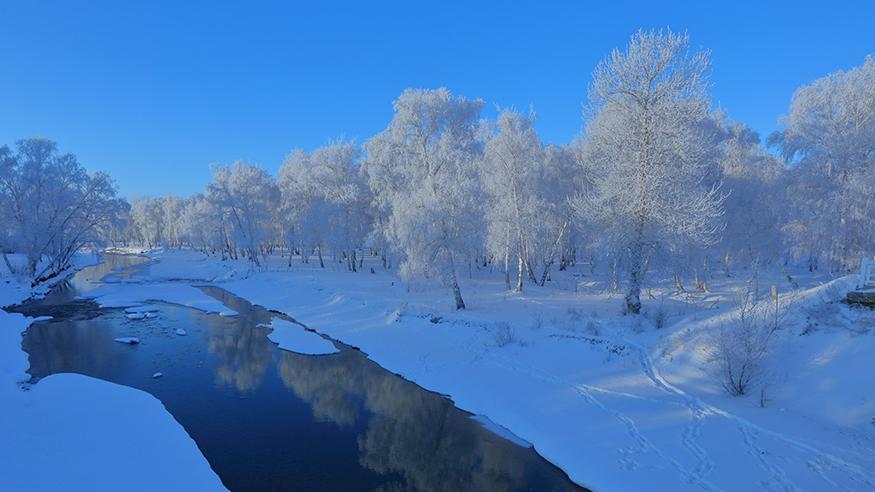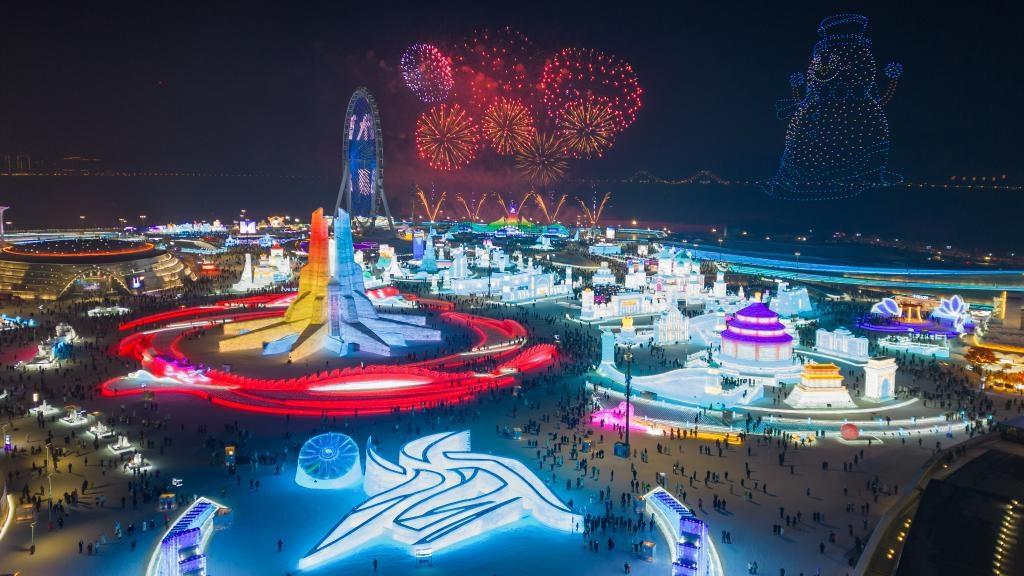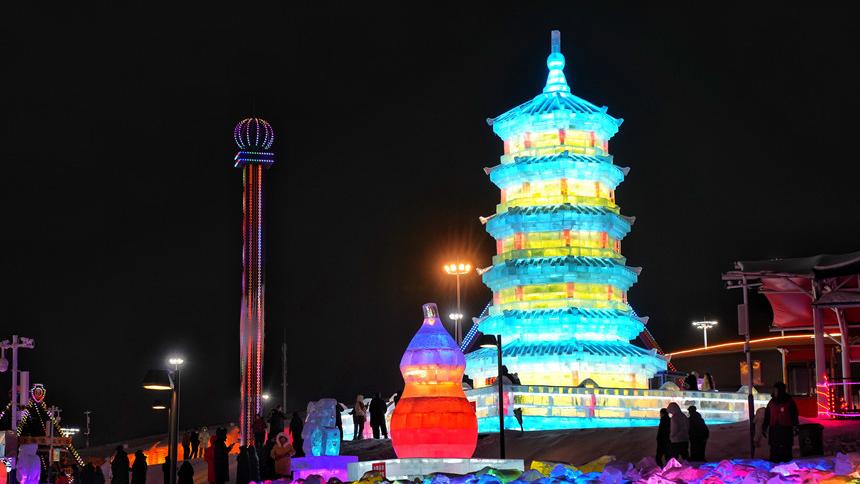Piano manufacturing achieves green transition in small township in E China's Zhejiang
Luoshe township in Deqing county, Huzhou city, east China's Zhejiang Province, has a flourishing piano industry. Along the main road of the township, one can discover a myriad of manufacturers specializing in crafting all the spare parts essential for the production of a piano.
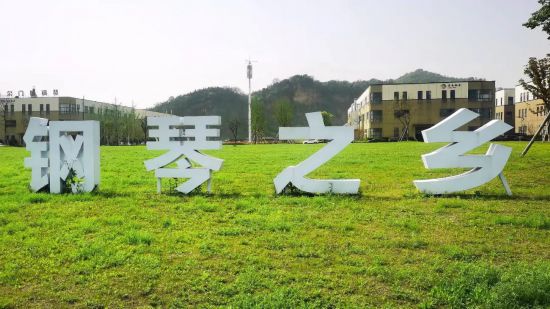
Photo shows Luoshe township in Deqing county, Huzhou city, east China's Zhejiang Province. (Photo from WeChat account of Zhejiang Qiantang River Culture Research Association)
"In the last two years, the piano industry has undergone new changes, embracing green and eco-friendly practices. We've been improving the manufacturing processes and receiving an increasing number of overseas orders," said Jin Yicheng, deputy general manager of Yueyun Piano Company, which is located in the township.
In piano production, with 88 keys, over 220 strings, more than 8,000 components, and over 300 procedures, wood plays a crucial role. In Luoshe township, piano production prioritizes environmental protection, beginning with wood processing.
At the wood warehouse of Yueyun Piano Company, a variety of woods from around the world are neatly stacked. In the adjacent woodworking workshop, workers process large wood pieces into piano components.
Factory manager Zhang Jialong mentioned that this area used to be a heavily polluted zone due to dust during manufacturing. The factory has upgraded its environmental control measures over the years, initially using bag-type dust collectors and later installing a new central dust removal system in 2019 for centralized wood dust processing.
Woodworking master Zhu Shengxiang said the investment in dust removal equipment has led to a 95 percent dust removal rate. Furthermore, the gathered wood dust is recycled into biomass pellets at wood processing plants for further use.
In piano production, the most heavily polluted stage is the painting process. At the factory of Yueyun Piano Company, the paint workshop has undergone significant transformations.
Previously, piano production in the township was mainly conducted in family workshops. "In the past, painting was primarily done manually. The factory only had basic dust collection devices installed, and the odor was quite strong," said a worker from the paint workshop.
The painting process has been revolutionized with the introduction of a water curtain spray painting booth and an activated carbon adsorption device.
Starting September 2018, the Luoshe township government gradually closed down piano factories that failed environmental assessments or had substandard organic waste gas emissions. It established a shared paint center, where small and medium-sized piano enterprises whose paint production lines were shut down can access unified painting services.
"After placing an order, I can receive the products in just over a month. Compared to painting on our own in the past, the paint craftsmanship is better here, with less pollution," said Yu Deming, head of a piano company in the township.
The shared paint center is located in the Piano Innovation Park in Luoshe township. Covering an area of 680 mu (about 45.33 hectares), the innovation park is a hub for the township's piano industry, encompassing various aspects of the piano production chain.
"Can you imagine that this place used to be an abandoned mine pit?" asked Zhang Shunlong, Party chief of Dongheng village, where the innovation park is located.
In recent years, the village has been gradually closing down mines in a move towards transformation. As the piano industry in Luoshe township was experiencing significant growth, it faced challenges such as the presence of non-professional sites and the use of environmentally-unfriendly equipment.
"We decided to fill in 680 mu of mine pits and build a piano innovation park," Zhang Shunlong explained. The park was completed in 2019, attracting 50 piano manufacturing companies from both upstream and downstream sectors to establish their presence.
"Right from the start of construction, we have adhered to high standards of environmental protection and energy efficiency," Zhang Shunlong explained. Each factory building is equipped with photovoltaic panels on the roof to prioritize meeting the daily electricity needs of the resident companies.
In the shared paint center, the concentration of volatile organic compounds in different areas ranges from 0.025 milligrams to 5 milligrams per cubic meter, which is well below the national emission standards," said Zheng Bo, the environmental management officer of Luoshe township.
Photos
Related Stories
- Chinese pianist Lang Lang honored with Hollywood Walk of Fame star
- Declining piano sales a sign of shift in focus
- French piano virtuoso to perform in Beijing
- Chinese piano maestro Liu Shikun honored with life achievement award in NYC
- Yichang in China's Hubei crowned "city of pianos"
- Austrian pianist Buchbinder returns to China with Beethoven sonatas
- NE China's Dongbei Piano Factory resumes production
- Bringing music to the world
- Workers make pianos at Dongbei Piano Factory in NE China
- French piano virtuoso to perform in Beijing
Copyright © 2025 People's Daily Online. All Rights Reserved.






